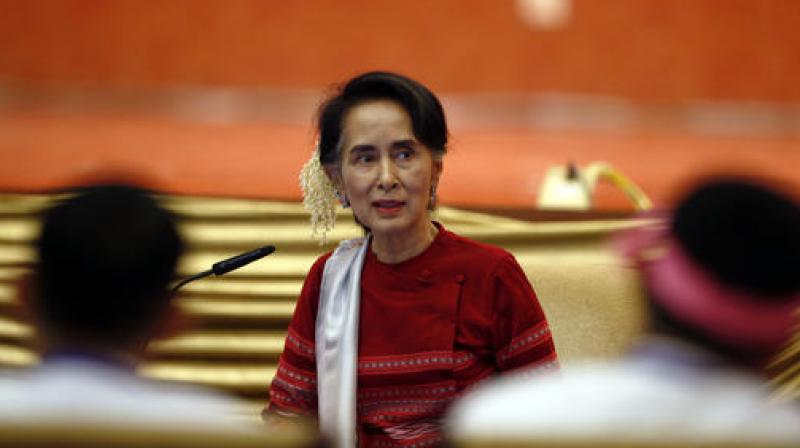Myanmar rejects UN criticism of Rohingya abuse investigation

Yangon: A Myanmar state commission probing allegations the military has killed, tortured and raped Rohingya Muslims rejected accusations it is not credible, saying Tuesday it was focused on the "truth" and not pleasing the UN.
Last week the United Nations' human rights office said Myanmar's military had likely killed hundreds of Rohingya Muslims during a continuing crackdown in a "calculated policy of terror" against the Muslim minority.
Almost 70,000 Rohingyas have fled to Bangladesh since the army launched "clearance operations" four months ago to find Rohingya militants they accused of carrying out deadly raids on police border posts.
The report by the UN's rights body OHCHR said the accounts of torture, murder and gang-rape at the hands of security forces were so severe they may amount to ethnic cleansing.
Among the brutal testimonies published were accounts of children butchered with knives while their mothers were raped by security forces.
For months Myanmar dismissed similar testimony gathered by foreign media and rights groups and curtailed access to the region.
But following last week's UN report a spokesman for Myanmar's president said the government was concerned by the "extremely serious allegations" and would investigate them through the Rakhine commission.
Critics have rejected the state-appointed body, which is led by retired general and Vice President Myint Swe and includes no Muslims, as toothless and lacking in credibility.
Last month it issued an interim report denying that troops had carried out a genocidal campaign against the Rohingya and saying it had found "insufficient evidence" of rape.
"The existing commission is not a credible option to undertake the new investigation," the UN's top official on preventing genocide, Adama Dieng, said in New York on Monday.
"I am concerned that the government commission... found nothing to substantiate the claims, while OHCHR... found an overwhelming number of testimonies and other forms of evidence."
But commission member Aung Tun Thet rejected the criticism, saying the body was focused on getting "fair results" and not pleasing the international community.
"What's more important than refuting them (the UN) is finding the truth," Aung Tun Thet, a retired UN adviser, told AFP.
"There will be criticism however hard you try. But for the commission, we must work out the truth of the situation."
The Rakhine commission is the second body created by Myanmar's de facto leader Aung San Suu Kyi to try to heal the religious divide in the state since sectarian unrest killed more than 100 people in 2012.
In August she appointed fellow Nobel laureate and former UN chief Kofi Annan to head a separate body tasked with finding solutions for the sectarian-plagued region.
Buddhist nationalists have bitterly denounced that body as foreign meddling.
There are more than a million Rohingya in Rakhine state, where they are considered illegal immigrants from Bangladesh and forced to live in conditions akin to apartheid.

